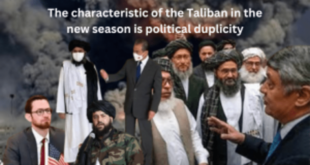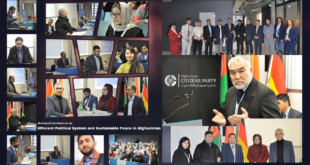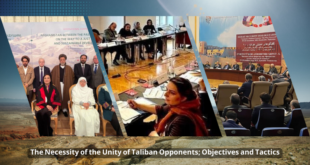Gender equality remains a global challenge, but the situation for women in Afghanistan is more lamentable than in any other country. Since the Taliban came to power, the condition of women has worsened significantly. Women’s presence in public life has been minimized to the greatest extent possible, and various forms of suppression and discrimination have been imposed on them. One example of violence against women is preventing their education, leaving the country with a shortage of female doctors, nurses, and midwives
The depth of this tragedy lies in the fact that the deprivation of women from various spheres was soon normalized, both internally and externally, in a way that the exclusion of women became accepted as a specific cultural characteristic of Afghanistan.
The Taliban, relying on their narrow interpretation of Sharia law, have imposed such restrictions against women. They have deprived women of all freedoms and imprisoned those who have raised their voices for their rights. The global community has merely limited itself to reporting the discrimination against women and has taken no practical action against the ruling group to hold them accountable for women’s rights
The first important step in overcoming the current distorted situation is to reinterpret the contentious interpretations of religious scholars regarding women in a confrontational manner. Many existing problems, such as widespread violence against women, their exclusion from public spaces, and mass killings, have their roots in conservative religious interpretations. The religious scholars in Afghanistan have a mission to rectify these deviations by reforming these interpretations, thereby keeping the Afghan people away from the pain and suffering caused by these seemingly religious biases.
In addition, Afghan civil society, especially organizations and institutions active in the field of human rights and women’s rights, must seriously combat discriminatory policies against women to prevent the perpetuation of the ugliness of women’s deprivation. Normalizing the state of deprivation keeps women perpetually vulnerable. This vulnerability, in addition to victimizing women, will impact the entire social arena in Afghanistan in the future, hindering any prospects for transformation and progress in the country
مطلب پیشنهادی
The Necessity of the Unity of Taliban Opponents; Objectives and Tactics
In recent weeks, a series of large and continuous sessions of opposing movements to the …
 حزب شهروندان افغانستان وبسایت رسمی حزب شهروندان افغانستان
حزب شهروندان افغانستان وبسایت رسمی حزب شهروندان افغانستان


